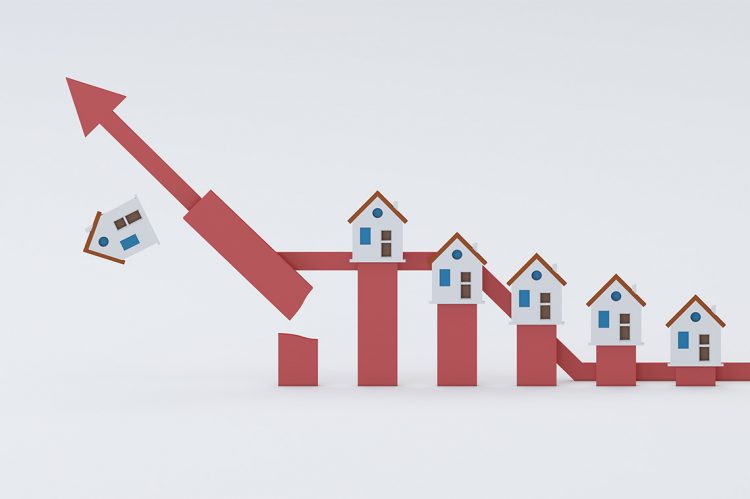The 30-year fixed-rate mortgage (FRM) averaged 6.79% this week, up from 6.57% last week. This is according to the latest Primary Mortgage Market Survey (PMMS) from Freddie Mac released Thursday.
This week’s numbers:
- 30-year fixed-rate mortgage averaged 6.79% as of June 1, 2023, up from last week when it averaged 6.57%. A year ago at this time, the 30-year FRM averaged 5.09%.
- 15-year fixed-rate mortgage averaged 6.18%, up from last week when it averaged 5.97%. A year ago at this time, the 15-year FRM averaged 4.32%.
What the experts think:
“Mortgage rates jumped this week, as a buoyant economy has prompted the market to price in the likelihood of another Federal Reserve rate hike,” said Sam Khater, Freddie Mac’s chief economist. “Although there has been a steady flow of purchase demand around rates in the low- to mid-6% range, that demand is likely to weaken as rates approach 7%.”
“Mortgage rates rose this week, bringing the average rate on a 30-year fixed-rate mortgage to 6.79%, the highest level since early November,” said Lisa Sturtevant, chief economist at Bright MLS. “This is also the biggest weekly jump in rates since last October. With home prices still rising, these higher rates have made housing affordability even a bigger constraint on the housing market as more homebuyers are shut out.
“There may be good news on the horizon, however. The deal struck between President Biden and House Speaker McCarthy is working its way through Congress, and it seems likely that an unprecedented debt default will be avoided. The protracted negotiations themselves led to higher mortgage rates, as closely-watching investors demanded higher returns from the U.S. Treasury. But as the government closes in on an agreement on lifting the debt ceiling, it is likely that mortgage rates will come down in the weeks ahead.
“A pullback in rates down from their eight-month high does not mean the housing market will get easier for homebuyers. First-time homebuyers, in particular, have been feeling squeezed. Part of the debt deal pushed up the resumption of student loan payments to September, (which) will hit younger people the hardest, pushing more would-be buyers out of the market,” Sturtevant concluded.
“The fear of a debt default continued to spread last week, which may have pushed the mortgage rate higher,” said realtor.com® Economist Jiayi Xu. “The fear of debt default affects mortgage rates through government-backed bonds. Investors lend money to the government through these bonds for a fixed term, earning interest. If the U.S. defaults on its debt, bond investments become riskier, resulting in increased yields and potentially higher mortgage rates. With the bill approval from the House on Wednesday, the likelihood of default is getting lower.
“However, it is important to note that the successful passage of the debt-ceiling deal does not provide an absolute safeguard against negative financial and economic consequences. Once the deal is reached, the U.S. government is expected to quickly increase issuance of Treasury bills, which has the potential to cause short-term liquidity challenges at banks, as businesses and households may reallocate their funds towards higher-yielding and relatively safer government debt. In order to keep attracting depositors, banks might be compelled to raise interest rates, thereby squeezing profit margins. This could lead to further rate increases across various loan products offered by banks, including both business loans and personal loans.
“As mortgage rates remain elevated, there has been a decline in the prices of existing-home sales over the past three months. As a result, we may see a potential decrease in asking prices during the upcoming summer season. It is important to consider what falling home prices could mean for the housing market. While a decline in home prices would be welcome to first-time homebuyers who lack existing equity to leverage, it could potentially erode some of the equity of current homeowners and pose risks to the financial system. However, thanks to today’s near-record high home equity levels, even in the event of a substantial 10% decline in home values from their level at the end of the fourth quarter, whether occurring suddenly or over two years with a climbing mortgage debt—this is an incredibly unlikely scenario. Home equity as a share of total real estate value would still exceed 60%, offering a significant cushion for existing homeowners in the aggregate,” Xu concluded.












